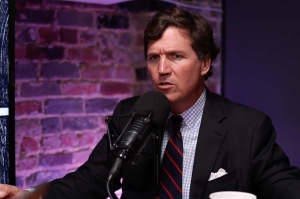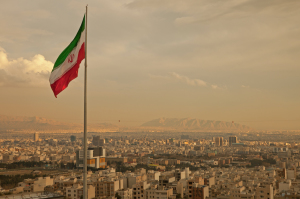Iraqi Political Groups Use Dwindling Christian Community as 'Tools'
Iraqi Christians are, for all purposes, unarmed and stuck being the political tool of the Arab or Kurdish government – either of which can be deadly to side with, according to a conflict-zone reporter in the Middle East.
The weak and ever-diminishing Christian community in Mosul, a northern city in Iraq, is locked in a political game where they can side with the nearby Kurdish forces and tacitly agree to support annexation of their area to Kurdistan, or support the Sunni Arab government of Mosul.
Many, however, want a semi-autonomous region in the Nineveh plain – the land where the prophet Jonah was sent to proclaim God's message, as recorded in the Bible. Christians propose they and other persecuted minorities can govern themselves as a state within Iraq there, and work and live in peace away from the constant threat of militants elsewhere in the country.
But as Campbell Robertson noted in The New York Times' "At War" blog, "All seem to be fairly exhausted when addressing the question [of who they should side with]."
"They (Iraqi Christians) know they're tools, ultimately, and not bargaining from a position of power," the American journalist commented.
Writing from the Times' bureau in Baghdad, Robertson highlighted the "particular hopelessness" seen in Christian towns in Iraq.
Though all religious communities are struggling in a country rife with bomb explosions and sectarian violence, the Sunni and Shiite neighborhoods all have some reason to be hopeful.
But in small Christian villages "optimism is almost nowhere to be found."
"The residents seem tired; looking into their empty, often unhealthy faces, you wonder whether the massive exodus of Christians from Iraq … has left only the weakest and least capable behind to look after their homeland," Robertson pondered.
Ongoing persecution of Christians in Iraq has forced hundreds of thousands of Iraqi Christians to flee the country. The U.N. High Commission for Refugees estimates that since the U.S.-led invasion of Iraq in 2003, some 250,000 to 500,000 Christians have left the country. That translates to about half the Christian population leaving within the short time span of six years.
In Mosul, the third largest city in Iraq, six Christians were killed in less than a week last fall, including three men within 24 hours.
The deaths quickly spread fear throughout the Christian community and resulted in more than 15,000 Christians fleeing Mosul over a period of two weeks.
While Christians in Iraq still speak with some pride of their claim to the land (they came long before the Islamic invasion) and their connection to Jesus Christ (they share the Aramaic language), many are confronted with the ever-more-likely possibility of the extinction of Christianity in Iraq.
"I feel more pessimistic now than ever before. We do not have the same hope that we had before," said Archbishop Louis Sako of Kirkuk in a recent interview with Catholic charity Aid to the Church in Need.
"In fact I am not seeing any signs of hope for the future," the northern Iraqi said. "Our whole future hangs in the balance."
Sako lamented about how there are no jobs, no services, and no facilities in villages in northern Iraq, and how many Christians are leaving as a result.
An Iraqi co-worker of the ministry Open Doors wrote in a recent e-mail, "I love my country and my city of Baghdad, but I am thinking of leaving Baghdad."
"Every day we live like in a horror city. Our wives cry all the time and are scared that we won't come back alive when we leave the house. For how long can I stand it," he wrote. "I am sorry. I am very depressed from the situation and living over here. So please excuse me and pray for us to always do the right thing."
In about four months, Iraq will hold its parliamentary elections. Iraqi and U.S. officials believe that a recent spike in high-profile attacks is aimed at decreasing public confidence in the Iraqi security forces ahead of the elections, scheduled for January 16, 2010.
Iraq's Shi'ite-led government has blamed supporters of Saddam Hussein's outlawed Baath party, and Sunni Islamist al Qaeda, for recent attacks. It also accused Baath leaders of plotting the bombings from neighboring Syria.



























